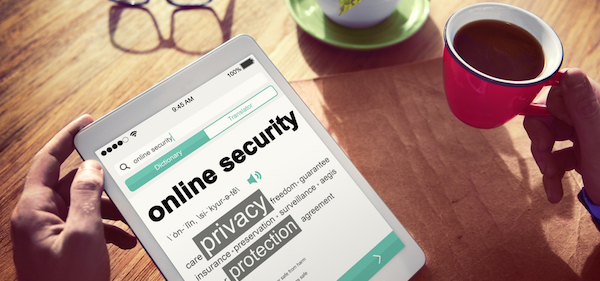We all take the internet and social media for granted, but unfortunately, so do cyber criminals. These five tips will help to ensure that you and your friends stay safe online.
Be careful when using public wifi
Public wifi is great, especially when you’re travelling or trying to keep below your data limit, but it can have some negatives as well. Using an open wifi network opens up the doors for hackers to intercept your data on its way through. If possible, try to avoid accessing any private or financial information whilst using public wifi. Also be careful not to access strange or fraudulent wifi networks. For example, if you’re looking for wifi in a café and find an open network called ‘free café wifi’, you may want to check with the employees to ensure that the wifi network is indeed theirs, otherwise you might be connecting to a network designed to collect all the data that passes through.
Reconsider what you post on social networks
Everyone gets excited before they go on vacation, so who can blame someone for posting a photo of a packed bag and some plane tickets to their Facebook account? Unfortunately, what many people don’t realise is that if you have your account on public, you may have unknowingly given someone the exact dates of when your house is going to be vacant and an easy target for robbery.
Check to see if your Facebook privacy settings are allowing unwanted eyes to view your posts.
Be careful of sharing photos of others online
Some people don’t want to be seen online, so it’s always best to ask someone if it’s okay before you post a picture of them online, especially if they don’t have a Facebook account. Another thing to be careful of is posting pictures of babies and children. When these kids grow up and start their own social network accounts, they probably don’t want to be bombarded by embarrassing photos that were taken of them as naked and sticky little kids. When uploading photos of youngsters, consider leaving the name of the child off the post, or calling them by a nickname.
Don’t post your phone number online
If something happens to your old phone, or you’re lucky enough to be getting an upgrade, try to avoid posting your phone number to your social accounts. Even if your account is private, hackers have digital trawling nets set in place that will search the internet for any personal data and then sell it on to other shady operations. Rather than posting your number online, see if you can import your contacts from your old phone and then send them all a text informing them that you’ve got a new phone number. If you can’t or you have lost your contacts, try posting an update asking people to send you a message and then reply with your number, or just send a message to everyone whose number you would like to know.
Activate two-step authentication
Two-step authentication or SMS verification will make it nearly impossible for your accounts to be accessed by anyone other than you. This works by sending you an SMS that contains a code which you must enter alongside your password to login to an account, some services will require this every time you login or whenever you log in from a new computer. Perhaps the only trouble with this is that is can be problematic or costly when travelling, as you will be sent SMS messages to confirm your login attempts.
Learn more about two-step authentication.
Have you got any tips for online safety and security?
Related articles:
Samsung TVs are listening in
Can the CIA hack your smartphone?
Stay safe when using email

